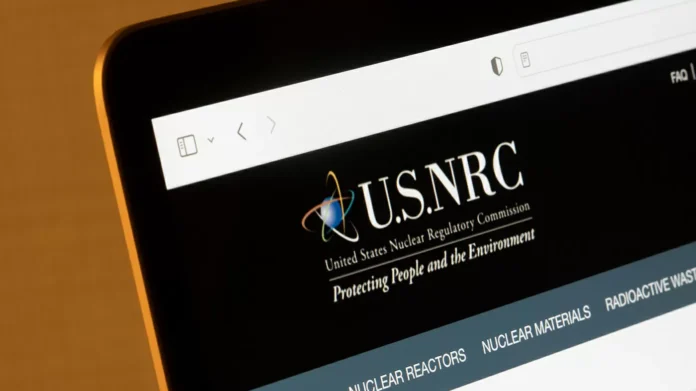A new development has taken place in the world of government efficiency and nuclear regulation, as a staffer from the Department of Government Efficiency (DOGE) has now assumed a key role at the Nuclear Regulatory Commission (NRC). This move comes at a time when President Trump has been actively seeking to reduce and reform the NRC, despite its independent status. The staffer in question, David Wright, has been renominated by Trump for a spot on the commission and recently appeared before the Senate Environment and Public Works Committee to discuss his vision for the future of the NRC.
This news has sparked excitement and optimism among those who are passionate about improving government efficiency and ensuring the safety and security of our nation’s nuclear facilities. With his experience and expertise in the field, David Wright is poised to make a significant impact at the NRC and drive positive change.
The Department of Government Efficiency, or DOGE, is a relatively new agency that was established to streamline government processes and eliminate wasteful spending. Its mission is to make government operations more efficient and effective, ultimately saving taxpayers’ money. David Wright has been an integral part of DOGE since its inception and has played a crucial role in its success.
Now, with his new role at the NRC, David Wright has the opportunity to apply his knowledge and skills to a different area of government. The NRC is responsible for regulating the nuclear industry and ensuring the safety and security of nuclear facilities across the country. It is an independent agency, and its work is crucial to protecting public health and the environment.
President Trump has been vocal about his desire to reduce and reform the NRC, citing concerns about its size and budget. However, with the appointment of David Wright, it is clear that the administration is committed to finding qualified and capable individuals to lead the agency. Wright’s nomination has received bipartisan support, further underscoring his qualifications for the role.
During his testimony before the Senate committee, David Wright outlined his priorities for the NRC, which include enhancing safety and security, improving efficiency, and promoting innovation. These are all crucial elements in ensuring that the NRC fulfills its mission effectively and efficiently.
Wright’s experience at DOGE will undoubtedly serve him well in his new role at the NRC. He has a proven track record of identifying inefficiencies and implementing solutions to improve government operations. This expertise will be invaluable as he works to streamline processes at the NRC and ensure that taxpayer dollars are being used wisely.
Moreover, Wright’s commitment to innovation and technology will be essential in addressing the challenges facing the nuclear industry. As technology continues to advance, it is crucial that the NRC keeps pace and adapts its regulations accordingly. With Wright at the helm, we can be confident that the NRC will continue to be a leader in promoting innovation and ensuring the safe use of nuclear energy.
In conclusion, the appointment of David Wright to a key role at the Nuclear Regulatory Commission is a positive step towards improving government efficiency and promoting safety in the nuclear industry. His experience, expertise, and commitment to innovation make him the ideal candidate for this important position. We look forward to seeing the positive impact he will have at the NRC and the continued success of DOGE in its mission to streamline government operations.

